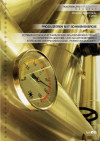Suchergebnisse
IEA FBC Technologieprogramm Wirbelschichttechnologie (Arbeitsperiode 2009 - 2013)
Überblick über den weltweiten Stand der Technik der Wirbelschichttechnologie hinsichtlich des Einsatzes im Bereich der Energietechnik.
Energieforschungserhebung 2010

Energie - Forschung und Entwicklung: Ausgaben der öffentlichen Hand in Österreich 2010
Einfamilienhäuser innovativ Sanieren

Erfolgskriterien und Vorschläge zur Übertragbarkeit von Best-Practice-Modellen
Energieforschungserhebung 2005

Ausgaben der öffentlichen Hand in Österreich - Erhebung für die IEA
Energieforschungserhebung 2007

Ausgaben der öffentlichen Hand in Österreich Erhebung für die IEA
Sustainable energy supply for Austria
Rapidly increasing energy consumption and decreasing resources of fossil fuels lead to dramatical economical, ecological and social problems.This study identified the feasible long term potential of renewable energy sources. Then ways were developed how to supply the demand for future energy consumption with renewable energy sources, despite increasing energy services.
Linking Low Carbon Technologies with Low Carbon Society

The project „Linking Low Carbon Technologies with Low Carbon Society“ was conducted on behalf of the Federal Ministry of Transport, Innovation and Technology. In the course of the project a number of recent empirical studies on rebound effects were analysed. Based on this comprehensive analysis an overview of strategies for rebound management was compiled and policy recommendations for the technology sector were developed.
Solar energy - a significant economic factor

Major goals of this study were determination of the number of jobs provided in the thermal solar energy sector, the added economic value created in this sector and the predicted effects of achieving the goals, in order to better evaluate the economic significance of the use of thermal solar energy.
Katalog der Modernisierung

Fassaden- und Freiflächenmodernisierung mit standardisierten Elementen bei Geschosswohnbauten der fünfziger und sechziger Jahre
Comfort for sustainability

Research project on comfort and on the health and recreational value of passive houses
Optimization of energy supply

The purpose of the work is to analyze the possibilities of the reduction of the energy demand of residential buildings by using telecommunication technologies such as mobile phones or Internet. Lowering room and water temperature during the absence of the inhabitants are of particular relevance.
ChristophorusHouse(CHH)

Multifunctional building in passive house standard - The building was designed as innovative high-quality passive house (wood construction) with the latest ecological building automation as a pilot project which is multipliable in a reduced respectively altered form in Europe as well as overseas.
Modernizing by Catalogue

Façade and Open Space Modernization with Standard Building Components in Housing of the Fifties und Sixties.
Datenkreis Energiewirtschaft
Die Dekarbonisierung des Energiesystems und innovative Dienstleistungen können durch die Verfügbarkeit und sektorübergreifende Weitergabe von Daten unterstützt werden.
ChristophorusHaus (CHH)

Multifunktionales Betriebs- und Verwaltungsgebäude mit Logistik- und Kulturzentrum in Passivhausstandard und nachhaltiger Holzbauweise - Das Gebäude wurde als innovatives, hochwertiges Passivhaus (Holzbau) mit modernster ökologischer Haustechnik als Pilotprojekt konzipiert, das in verkleinerter, bzw. veränderter Form in Europa wie in Übersee multiplizierbar ist.
Zukunftsfähige Energieversorgung für Österreich
Rasch wachsende Energieverbräuche und schwindende Reserven fossiler Energieträger lassen dramatische wirtschaftliche, ökologische und soziale Probleme erwarten. In dieser Studie wurde das langfristig realisierbare Potenzial erneuerbarer Energieträger ermittelt. Dann wurden Pfade entwickelt, wie trotz steigender Energiedienstleistungen der künftige Energieverbrauch mit erneuerbaren Energieträgern gedeckt werden kann.
Produzieren Mit Sonnenenergie

Potenzialstudie zur thermischen Solarenergienutzung in Österreichs Gewerbe- und Industriebetrieben im Rahmen der Programmlinie "Fabrik der Zukunft"
Forschungsforum
4/2003
Herausgeber: BMVIT
Deutsch, 6 Seiten
Downloads zur Publikation
Berichte aus Energie- und Umweltforschung 13/1996 Forschungsdokumentation Energie und Umwelt 1994 - 1996

Berichte aus Forschung und Praxis in Österreich - Energieforschung und Energieaufkommen, Energieeffizienz und Klimaschutz, Biomasse, Sonnenenergie und Windenergie, Strategien und Maßnahmen zum Klimaschutz
Berichte aus Energie- und Umweltforschung 4/1999 Energie - Forschung, Entwicklung und Demonstration

Ausgaben des Bundes und der Länder sowie der Industrie in Österreich
Technical status of ventilation systems for buildings

Evaluation of existing ventilation systems in Austria considering technical quality and practicability.
